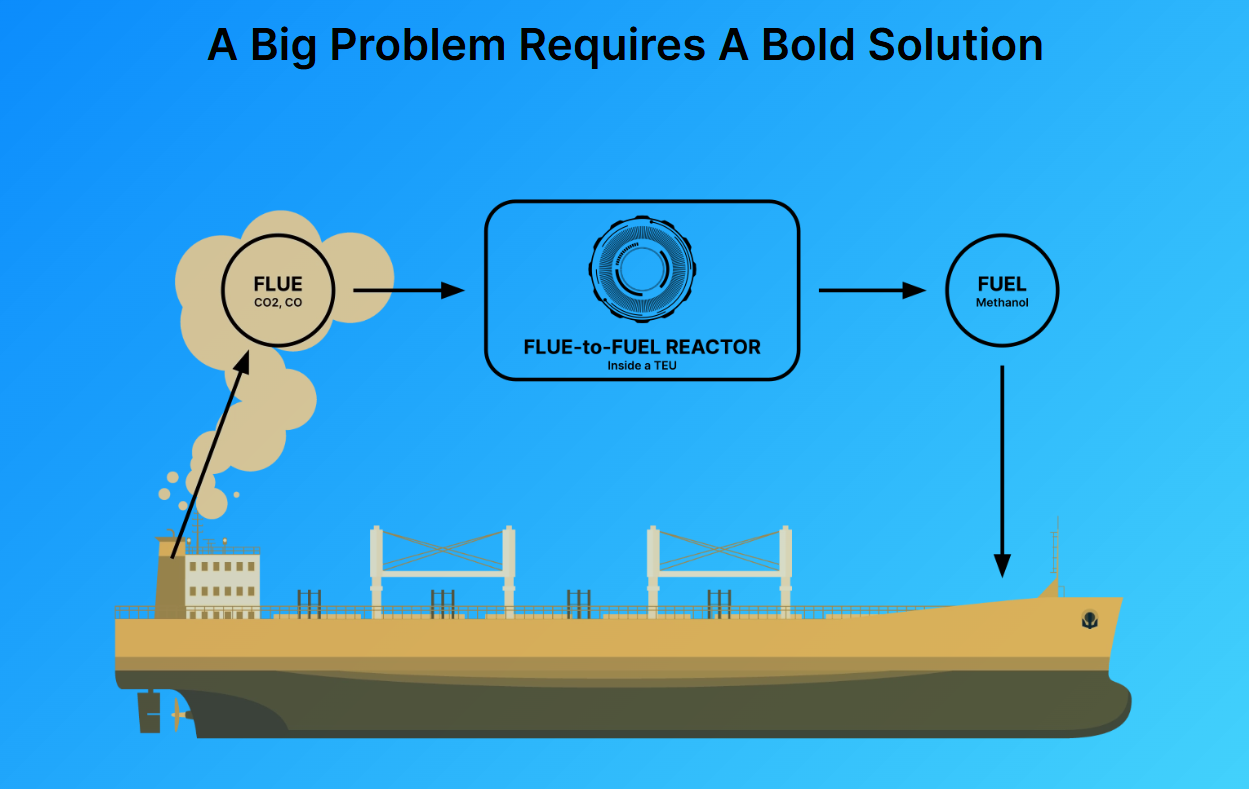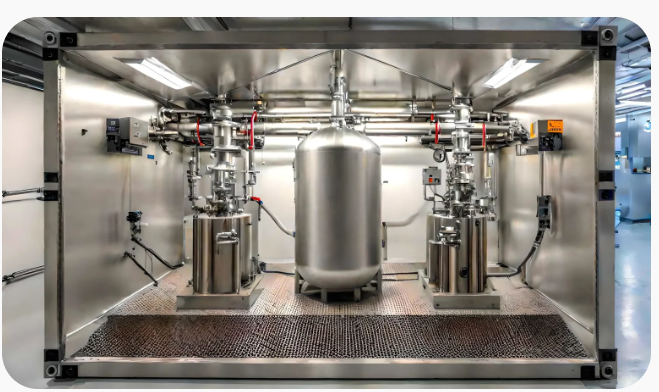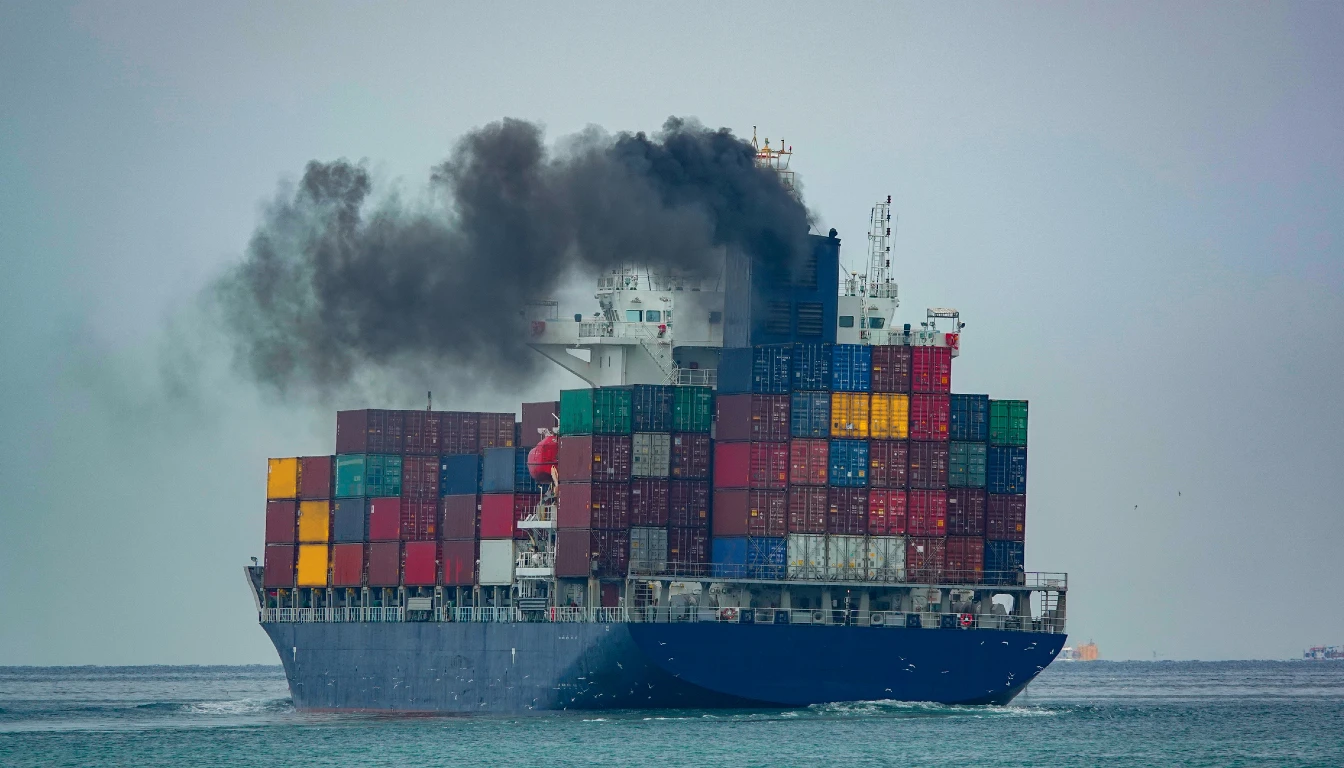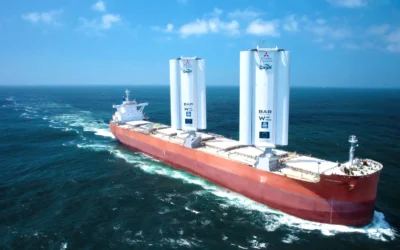Elie Slama, Co-Founder of ElectroFuel Marine, explains their cutting-edge technology that could significantly reduce emissions in the shipping industry.
What is the problem that your company is solving and why is it important to do so?
If Maritime Shipping was a country today, it would rank 5th in CO2 emissions, after the US, China, Russia, and India. To address this issue, the IMO has recently placed strict and ambitious carbon reduction mandates and goals for 2030-50.
However, currently, the shipping industry lacks scalable solutions for capturing, and utilizing ship emissions while at sea, leaving over 1billion tons of annual CO2 emission unaddressed. At present, 99% of ships are still fossil fuel-dependent.
This is the most significant cost and financial risk for shipping companies, estimated at over $150billion annually for the industry, while also contributing to 3% of global emissions.

What technology/innovation are you bringing to this field?
We are an early-stage deep-tech startup setting out to revolutionize industrial gas separation with our customized graphene-based membranes, developed through over a decade of R&D in collaboration with CA2DM, NUS, Singapore.
Our proprietary advanced material technology enables us to program a membrane to exclusively pull molecules of any selected gases (CO2, CH4, Hydrogen, etc.), targeting the nano-molecular level, to consistently achieves over 95% single-gas separation from mixtures, with up to 99.9% purity, at a fraction of the cost and energy requirements of traditional systems.
Our proposed solution harnesses this technology for application in the maritime sector, by designing the world’s first modular, plug-and-play flue-to-fuel reactor system that circularly converts greenhouse gas emissions from ships into usable electrofuel in real-time, without requiring any major infrastructure changes. This system will significantly impact global greenhouse gas (GHG) emissions reductions, particularly in the maritime sector, where we target a 30-40% reduction in ship emissions. By converting flue gases into clean fuels through our reactor system, we enable ships to reduce their reliance on conventional fossil fuels and cut down their carbon footprint. Our technology is scalable, modular, and designed as a plug-and-play system, making it adaptable for different ship types and port infrastructures.

The gas separation technology in situ.
What stage of commercialization are you at? Who are your backers?
We are ready to embark on commercial Proof of Concept (POC) projects with our graphene membranes. These can be tailored flexibly to address multiple specific gas separation challenges, whether it be CO2, hydrogen, methane, or other gasses, in the industrial sector.
We are now focusing on selling our customized Graphene-based membrane to the wider carbon capture market, particularly the manufacturing sector of high-GHG emitting industries like chemicals, fertilizers, cement, etc.
Simultaneously, we have launched R&D to develop the flue-to-fuel reactor for Maritime application targeting in-ocean traffic decarbonization.
Our backers are Singapore Deep Tech Alliance, Deep Tech Venture Partners and the National University of Singapore’s Center for Advanced 2D Materials.
How does your product or service contribute to environmental sustainability?
Utilizing its patented Graphene-based membranes – demonstrating over 95% efficiency in molecular-level CO2 separation without requiring additional energy, Electrofuel Marine’s reactor plugs into the ship’s scrubber or engine system, filters out CO2 emissions, and through a continuous hydrogenation process generates eMethanol, which is then blended back into the ship’s fuel supply. Through this process, EM aims to reduce ship fuel usage by 30%, and cut ship emissions by at least 30% while at sea.
Currently, there are no scale-able solutions to capture and utilize large container ships’ GHG emissions during their voyage. 99% of ships, or 60,000 ships can only burn fossil fuel and only 100-200 new large container ships are built a year. This is a slow energy transition process. We are that missing piece in facilitating a successful decarbonization journey for the global maritime shipping industry, because our innovation makes each ship its own circular energy unit, for a relatively low cost and with minimal adaptation required. Moreover, our technology is built to target the industries net-zero compliance challenges in the situation where it struggles the most – at sea. Where there are no facilities, bunkering, fueling or treatment complexes, etc. to support them.

The ElectroFuel Marine team.
What are the key challenges that you face?
The key concern for our R&D team focuses on successfully developing the reactor to withstand the environmental and engineering challenges that are inherit to long oceanic voyages and the immense engineering scale of large container ships.
What do you need to overcome them?
To overcome this challenge we aim to partner with shipping companies from the very start of the R&D process, in order to leverage the profound knowledge and infrastructure they possess regarding maritime travel. We aim to move experimentation from a lab setting, or model ship engines, to testing our system in real life conditions at sea. For that, we seek forward thinking maritime shipping companies to join us as design and development collaborators.




